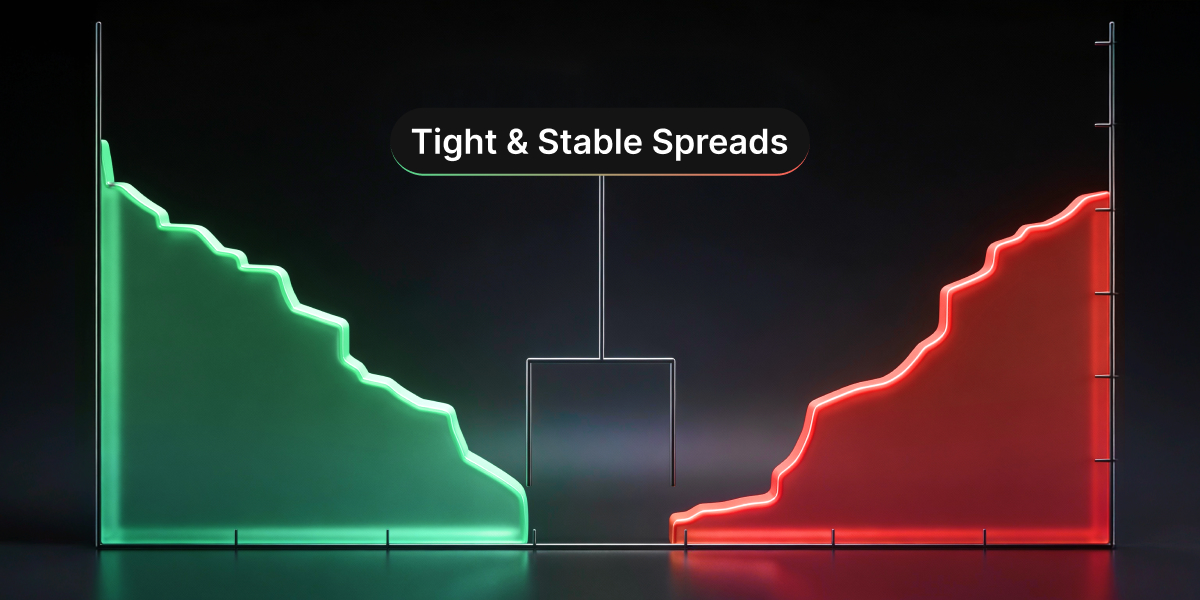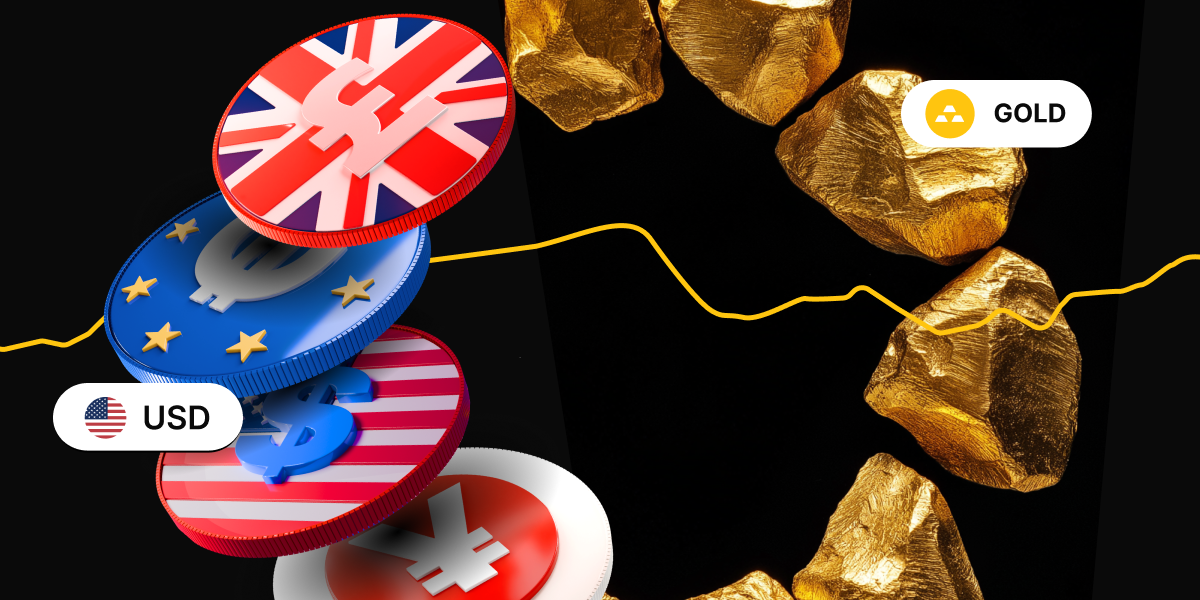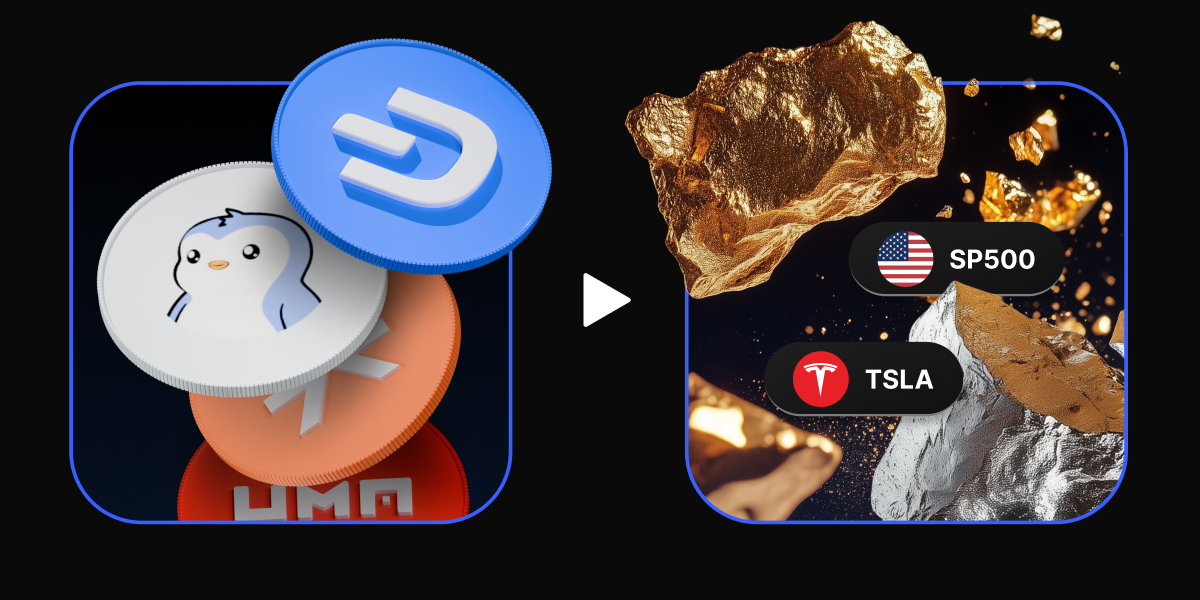Privacy coins are a type of Cryptocurrency that works like physical cash, also known as fiat currency, i.e. allowing users to perform confidential transactions. Privacy coins employ shielded transactions, ring signatures, stealth addresses, and other privacy-preserving technologies to keep end users’ identities, transaction data, and transaction history private.
A privacy focused coin like Monero or Zcash is otherwise very similar to “traditional” Cryptocurrencies like Bitcoin and Ethereum.
In this article, we will look at what privacy coins are, how they work, the most popular types of privacy coins, the legal and regulatory discussion surrounding privacy coins, and, of course, what the future may hold for them.
Key takeaways
- Privacy coins work like cash in the real world, keeping transactions confidential
- They ensure anonymous transactions by employing stealth addresses, ring signatures, and shielded transactions
- Privacy coins are also based on blockchain technology, with various privacy-focused additions
What are privacy coins?
Privacy coins are Cryptocurrency designed for private transactions. Although all Cryptocurrency transactions are, to an extent, encrypted, the blockchain or distributed ledger is publicly accessible.
This means you can see transaction data on that distributed ledger, including the people’s public addresses that performed the transaction and the transaction amount.
Privacy coins, on the other hand, commit confidential transactions. One of the most robust, privacy coins is Monero. It uses so-called stealth addresses (that are “disposable” one-time use addresses) and ring signatures that link transactions previously made with new ones as a decoy measure. It also employs a measure called ringCT, that hides the transaction amount. This allows for relatively anonymous buying and selling across multiple users.
Other coins like Zcash achieve anonymous transactions using zero-knowledge proofs to confirm transactions without the need to share further transaction information.
How do privacy coins work?
Privacy coins have various privacy features to ensure that users of their coins remain anonymous and add privacy protection. Monero transactions, for example, use one-time addresses and a method that bulks new transactions with older ones as a decoy with what is called ring signatures.
Finally, Monero transactions use what is called ringCT that hides the amount of their Cryptocurrency transactions.
Other privacy coins, like Zcash, use zero-knowledge proofs or (zk-SNARKs), which allow for transparent buying and selling but still offer financial privacy. Essentially, this allows for transactions to be confirmed without sharing any further information.
Comparatively, Bitcoin transactions share all kinds of sensitive information, including recipient address, sender address, transaction hash/id, transaction time and amount.
The most prominent privacy coins

The biggest privacy coins by market capitalization are Monero, Zcash and Dash, and all allow for private financial transactions to various degrees of anonymity. Each allow for digital payments and the use of the network’s tokens as digital assets for investing.
Here are how each works:
- Monero (XMR): as stated previously, Monero has multiple ways to permit confidential transactions with multiple privacy enhancing features including one-time addresses and ring signatures
- Zcash (ZEC): Zcash allows for transparent transactions with zero knowledge proof, that confirms the exchange but does not reveal further information
- Dash (DASH): Dash has a different mechanism called PrivateSend to obscure the origin of the activity. PrivateSend sends purchases or sales to Masternodes, where they mix with other transactions, hiding the origin of those activities
Top 10 privacy coins by market capitalization
The top ten privacy coins by market capitalization are:
| Privacy Coin | Market Cap (at time of writing) |
| Monero (XMR) | $2,642,479,471 |
| Oasis Network (ROSE) | $1,212,684,523 |
| Zcash (ZEC) | $540,332,884 |
| Decred (DCR) | $454,502,604 |
| iExec (RLC) | $310,549,406 |
| Status (SNT) | $207,293,207 |
| Horizen (ZEN) | $198,277,803 |
| Secret (SCRT) | $178,996,683 |
| Keep Network (KEEP) | $172,356,003 |
| Pirate Chain (ARRR) | $33,316,091 |
Legal and regulatory landscape
Privacy coins have addressed a fundamental need within the Cryptocurrency community: the ability to conduct purchases or sales with a high degree of anonymity. This is particularly important in an era where privacy concerns are at the forefront of public discourse. With the rise of surveillance technologies and the increasing sophistication of data analysis techniques, individuals are rightfully concerned about the privacy of their financial activity.
Privacy coins offer a solution to this problem by incorporating advanced cryptographic techniques to obfuscate transaction details, ensuring that users can transact without fear of surveillance or tracking.
However, these coins also face significant challenges and controversies. Chief among these is the perception that they facilitate illicit activities such as money laundering, terrorism financing, and tax evasion.
Private coins and illicit activity
While it’s true that they can be used for nefarious purposes, it’s important to recognise that the vast majority of Cryptocurrency transactions are conducted for legitimate purposes.
Moreover, traditional financial systems are also used for illicit activities, yet they are not subjected to the same level of scrutiny and criticism as privacy coins. As such, it’s essential to approach this issue with nuance and recognise the legitimate use cases for privacy coins.
But as you can gather, much like other non digital assets that can not be tracked by a centralised agency or government, the legal and regulatory framework is challenging.
Even though the privacy coin can help protect people performing large purchases or sales or individuals pay for essentials who are living under dangerous regimes or a regime that it’s economy has imploded. Ultimately privacy is a fundamental human right.
Sure, there is the potential for privacy coins to be used in less than savory ways, but that’s true of any type of funding method, including highly regulated stocks and bonds.
Private coins and regulation
So why are privacy coins feeling regulatory pressure more than other stores of wealth?
First, because they are new, governments tend to regulate first and understand later. Well, first, they completely ignore new technologies until they can’t anymore.
If you have any doubts, look at the frenzy of legislation around social media, Bitcoin, or AI.
Or you could look at Tornado Cash a mixing process that’s based on the Ethereum network that was on of the many banned privacy coins in the US. But the US restriction on privacy coins, seems trivial compared to South Korea, which has prohibited the exchange of privacy coins, but even that is child’s play compared to Japan and Dubai that does allow you to even have one privacy coin.
Much of the conversation relating to the legality of every privacy coin, revolves around money laundering. Without being able to track transaction amounts, governments and regulators have no way of taxing said buying and selling.
Unfortunately these restrictions have forced many Cryptocurrency exchanges to adjust their policies. Crypto exchange giants such as Coinbase and Binance do not offer buying and selling of any privacy coins on their platforms.
The future of privacy coins
The fact that privacy coins fulfill a need in the Cryptocurrency ecosystem is undeniable, this also means that there are people who will not only champion for their legitimacy but also push for their widespread adoption.
Sure, critics argue that they can be used for criminal activities, or illegal activities, but this is true of any currency, digital or not.
Private coins, public everything
In a world where everything is public, user privacy, especially in regards to a users financial activity, is extremely important.
When Cryptocurrencies were initially introduced, decentralised and anonymous buying and selling were the focus. Privacy coins seem to follow this philosophy well, ensuring that users are able to perform buying and selling without prying eyes or nefarious players tracking or seeing information regarding their transactions.
Privacy coins vs Bitcoin’s privacy features
Often, the difference between privacy and anonymity is confused. Privacy means that no information is available regarding the amount, the service or product exchanged and the identity of the people involved in the the transaction.
Anonymity means that the identity of the people involved is hidden but other types of information might be publicly visible.
A Bitcoin protocol based transaction is anonymous since addresses are used instead of names, meaning that identities are hidden, but everything else about transactions are public and recorded on the blockchain.
Are privacy coins truly private?
That largely depends on which privacy coins you are looking at. A privacy coin like Monero uses ring signatures and stealth addresses to obscure all data related to the transaction altogether. Other privacy coins like Zcash uses zero knowledge proofs, which essentially allows transactions to be confirmed without revealing further information about the transaction.
A privacy coin will employ other ways to obscure transaction information, including “mixing” that mixes old transaction with new ones.
Being connected isn’t private
At the same time we live in an extremely connected world. Everything we use that has an internet connection is likely gathering some sort of data, in the best case scenario it is simply looking at our interests and website visits to show us more targeted ads.
Worse case scenario is they gather much deeper, much more revealing information regarding our online habits and traffic. Additionally, you are likely connecting to an Internet Service Provider, which can collaborate and provide authorities with information regarding their customer’s traffic and online behavior.
So unless you have assessed all those items, yes, you and your transactions may be traceable and not as anonymous as you may have thought.
Still a privacy coin is absolutely more private than other Cryptos and digital assets, unless you are buying, selling and trading with high network security and your own private network, unfortunately you are not completely hidden.
So ultimately nothing can be truly anonymous or private.
Conclusion
The future of privacy coins is at the moment unsure. Authorities afraid of a privacy coin or other digital currencies being used for money laundering or other grey markets activities, make them subject to restriction, regulation or even worse complete prohibition.
Privacy coins have emerged as a crucial component of the Cryptocurrency landscape, offering users a means to transact securely and anonymously.
In this conclusion, we’ll reflect on the significance of privacy coins, their potential impact on the financial landscape, the challenges they face, and the ongoing debate surrounding their use.
Moreover, privacy coins have the potential to democratize access to financial services, particularly for individuals living under oppressive regimes or in regions with inadequate banking infrastructure.
By providing a secure and private means of conducting transactions, privacy coins empower individuals to take control of their finances and participate in the global economy on their own terms.
This has profound implications for financial inclusion and economic empowerment, potentially lifting millions of people out of poverty and giving them access to opportunities that were previously out of reach.
Another challenge facing privacy coins is regulatory uncertainty. Governments around the world are grappling with how to regulate Cryptocurrencies, particularly those that offer strong privacy features. Some countries have banned privacy coins outright, while others have implemented strict regulations governing their use.
Regulation uncertainty
This regulatory uncertainty creates challenges for privacy coin projects and users alike, as they must navigate a complex and evolving legal landscape.
Despite these challenges, the demand for privacy coins continues to grow, driven by a growing awareness of the importance of privacy in an increasingly digital world.
As individuals become more aware of the risks associated with digital surveillance and data breaches, they are turning to privacy coins as a means of protecting their financial privacy.
This trend is likely to continue in the years ahead, driving further innovation in the privacy coin space and pushing the boundaries of what is possible with Cryptocurrency technology.
The value of privacy coins
In conclusion, privacy coins occupy a crucial niche within the Cryptocurrency sphere, offering users a secure and private means of conducting transactions.
While they face challenges and controversies, their potential to empower individuals and protect financial privacy cannot be overstated.
As the Cryptocurrency landscape continues to evolve, privacy coins are likely to play an increasingly important role, driving innovation and reshaping the global financial system.
However, their success will ultimately depend on their ability to address regulatory concerns and build trust with users and regulators alike. Only time will tell how this fascinating and rapidly evolving space will unfold.
Are privacy coins illegal?
In certain locations, yes they are.
What is the best privacy coin?
Monero is the largest by market cap, but each has different features for different use cases.
Are privacy coins a good investment?
Considering Monero has such a large market cap, they absolutely could be a valid store of wealth, but there is the danger of regulation always looming.
The content provided here is for informational purposes only. It is not intended as personal investment advice and does not constitute a solicitation or invitation to engage in any financial transactions, investments, or related activities. Past performance is not a reliable indicator of future results.
The financial products offered by the Company are complex and come with a high risk of losing money rapidly due to leverage. These products may not be suitable for all investors. Before engaging, you should consider whether you understand how these leveraged products work and whether you can afford the high risk of losing your money.
The Company does not accept clients from the Restricted Jurisdictions as indicated in our website/ T&C. Some services or products may not be available in your jurisdiction.
The applicable legal entity and its respective products and services depend on the client’s country of residence and the entity with which the client has established a contractual relationship during registration.




